This month, we celebrate financial literacy. I know, I know, boring subject, but it is important to remember its value. Its interconnection to our daily lives, our future lives, and our future generations, is critical to our overall well-being. Check out Generational Wealth in the Black Culture: Past and Present for a quick reminder. It is also important to key in on how financial literacy particularly affects certain demographics. For instance, African Americans. Simply put, having knowledge of the problem and learning how to improve upon it, can help us to better prepare for the unpredictable.
So, in honor of National Financial Literacy Month, Let’s explore!
What is Financial Literacy?
Financial literacy is defined as a person’s ability to comprehend and use financial skills, such as personal finance, budgeting, and investing. The African American community has battled against the racial wealth gap for centuries, and while the most effective answer would be to implement systematic change, financial literacy may be a way to at least begin that journey. Hypothetically, if there was systematic change implemented, could our community even manage the potential wealth we would have access to?
The keys here are (1) having access to wealth, and (2) having the knowledge to manage that wealth. I’m sure you’ve heard of fellow African Americans gaining a large sums of money through winning the lottery, inheritance, or maybe even by winning a lawsuit. And then, sadly, you hear of them mismanaging those funds.
Financial Literacy Month
Luckily, this is what Financial Literacy Month is all about. Financial Literacy Month is recognized to raise public awareness of the importance of financial literacy and maintaining smart money management habits. In March 2017, President Obama made a proclamation that highlighted how important it is to be financially capable, declaring April as National Financial Capability Month. As a result, several initiatives have sprouted up over the years.
For example, as of April 5th, 2023, CNBC announced its plans for a financial education initiative called CNBC Your Money. The program will be dedicated to teaching individuals how to manage, grow and protect their money so they can live ambitiously. The initiative pushes to help meet the needs of underserved communities by utilizing advocacy and access to educate every age group about personal finance management.
Another Initiative
Another initiative to look out for is Jump$tart. The Jump$tart Coalition for Personal Finance Literacy is a 501 (c) (3) tax-exempt organization based in Washington, D.C. The coalition consists of more than 100 national organizations and a network of 51 independent, affiliated state coalitions that share a commitment to advancing youth financial literacy. They work with initiatives like Project Groundswell, which is an effort to push for more financial education in schools. Jumpstart also provides an online library that can be used to find financial education resources.
It also takes advantage of Financial Literacy Month by campaigning to spread awareness about the importance of financial literacy. By visiting their website, users can explore various content about financial literacy. On the Financial Fridays blog space, every Friday they share some of the latest important financial news.
The Impact of Credit
According to Christian Simmons, author of Financial Literacy in the Black Community, about 54 percent of Black Americans report having no credit or a poor to fair credit score below 640. This was based on a 2021 survey conducted by Credit Sesame of 5,000 U.S. adults. Having low credit or no credit at all can impact what you have access to. It can affect potentially getting a house, a car, or in some cases a particular job. And being financially illiterate can even set you 10 steps back from the starting line. A large part of this can of course be attributed to national racial disparities facing the Black community. Another part can be blamed on our lack of knowledge.
I’m sure you’ve heard the saying, your grandparents said to you time and time again, “knowledge is power.” Well, it’s true. The more we know about our money, where to put it, or even the meaning of certain financial terminology, the more traction we gain. Knowing is half the battle.


